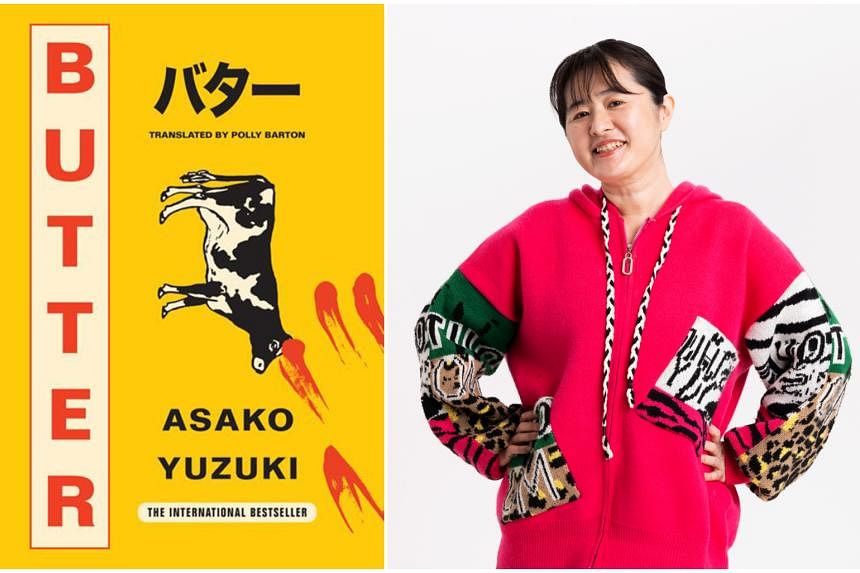Butter
By Asako Yuzuki, translated by Polly Barton
Fiction/4th Estate/Paperback/464 pages/$29.11/Amazon SG (amzn.to/49yDwhf)
4 stars
Butter, a bestseller when it was released in Japan in 2017, is inspired by the true story of one of Japan’s most notorious serial killers, Kanae Kijima. She was convicted in 2012 for the murder of three lovers.
Its author, Asako Yuzuki, 42, is among Japan’s most prolific and eminent female writers with 23 novels to her name. Butter, however, is only her first work to be translated into English.
She builds a narrative around Manako Kajii, an imperious 35-year-old gourmand locked away behind bars. She had been found guilty of killing three lonely men, whom she seduced with her cooking and then made away with their money.
Butter is an addictively weird culinary romp that somehow brings to mind BTS’ song of the same name (2022), which opens with the line “Smooth like butter/like a criminal undercover”.
In the novel, the dairy product is the omnipresent ingredient across the dishes featured, which transports readers from Kajii’s blogged recipes to Michelin-starred restaurants to dingy ramen joints.
Kajii insists on using quality butter in her recipes, likening the sensation of eating good butter to one of falling: “The body plummets, starting from the very tip of the tongue.”
She refuses to speak to the media, but this does not deter the hard-nosed weekly tabloid journalist Rika Machida.
Eventually, the lines between work and friendship get blurred as Machida gets reeled into Kajii’s vortex. She even promises to act as Kajii’s proxy in eating what she cannot get behind bars, and then regaling her with luscious descriptions of the experiences.
In one of Butter’s strangest developments, Kajii convinces Machida to go for a late-night supper of butter-topped ramen after sex.
“After sex, you’re left emptied out. I’m seized by the urge to fill up that starved self with something hot, rich and juicy,” Kajii says. Machida later describes the sensation as “one of freedom – the kind that could only be savoured alone”.
Butter tries to be many things at once.
There are lengthy gastronomic exchanges, glimpses of the workings of Japan’s media industry and discussions over Kajii’s culpability since she was not directly involved in the deaths of her lovers – one died from an overdose of sleeping pills, another drowned in the bathtub and one fell in front of an approaching train.
It also discusses Japanese society’s traditional ideals of women, who are expected to be skinny, unassertive and domesticated.
Crime buffs in search of an atmospheric Japanese noir thriller will be left disappointed. Butter is less a delicious murder mystery and more an anthropological take on the pursuit of happiness by Japanese women in a misogynistic, patriarchal society.
But one thing is certain: Indulging in Butter will make you hungry, with its rich, mouth-watering descriptions of food.
If you like this, read: Sweet Bean Paste by Durian Sukegawa, translated by Alison Watts (Simon and Schuster, 2017, $19, Amazon SG, go to amzn.to/3IkkrmX). An unlikely friendship forms between two social outcasts: Sentaro, a former jailbird working at a dorayaki (red bean paste pancake) shop, and leprosy-stricken elderly Tokue, who makes the best sweet bean paste he has ever tasted.


